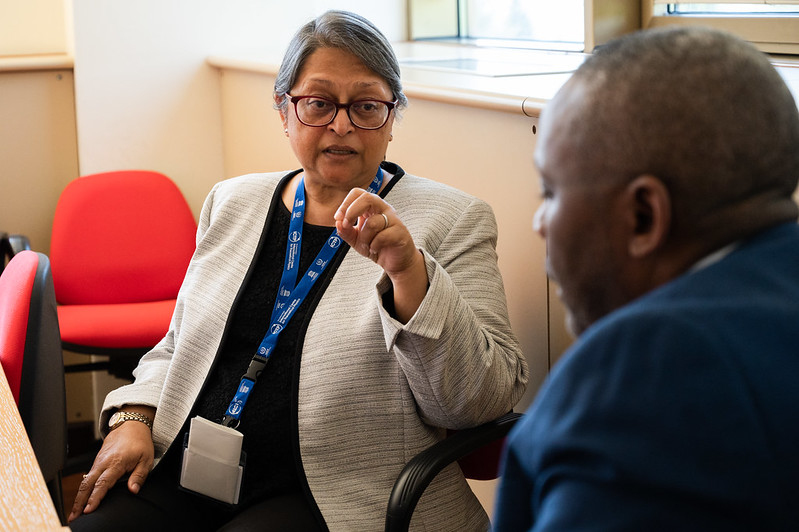Amid all the pressing challenges facing humanity, recent anomalous weather patterns and increasingly frequent natural disasters are a reminder that this existential threat needs urgent attention globally. In the words of the UN Secretary-General António Guterres on World Environment Day: "The need for action is unprecedented but so is the opportunity—not just to deliver on climate, but on economic prosperity and sustainable development"

Unsurprisingly, the global South is bearing a disproportionate burden of climate change’s impact due to the limited infrastructure, capacity, and resilience to respond timeously and effectively in the face of multiple competing priorities. TWAS has begun seeking ways to bridge some of these gaps through novel approaches to training and capacity development—equipping climate scientists from the global South with the means to have their voices heard when global climate policy and decisions are being made, and enabling them to contribute to evidence-based decision-making nationally, regionally and globally.
In this edition of the TWAS Newsletter, you will see some of the results of these efforts. We highlight a special training workshop that showcased the Intergovernmental Panel on Climate Change (IPCC), and how participation in it influences policy.
The IPCC is a United Nations body for assessing the scientific evidence related to climate change. Thousands of people from all over the world contribute to the evidence reviewed by the IPCC, but it remains under-represented in voices from the global South.
The Academy brought together 45 scientists from 36 developing countries, in addition to experts from the IPCC, in this workshop to facilitate a rich dialogue on priorities. They shared recent evidence and discussed potential solutions and next steps to move the agenda forward in a more inclusive manner.
In addition to this type of workshop, with the IPCC and scholars from the global South, TWAS is also supporting developing-world climate scientists though a growing portfolio of climate-focused programmes, such as TWAS-Elsevier Foundation Project Grants for Gender Equity and Climate Action, and the TWAS-Sida PhD Scholarships for Climate Research for Students from Least Developed Countries (LDCs).
Science holds the key to sustainable development, and both innovation and the knowledge of indigenous people are pivotal in the global fight against climate change. Equally important is providing decision makers at the local, regional, and global level with robust data for evidence-based policy.
The full participation of every person globally will ensure everyone’s ownership in, and commitment to, key mitigation and adaptation strategies as they are formulated and adopted. Our strategy and approach to the climate crisis must leave no one behind, accounting for factors ranging from unique geospatial considerations to challenges in gender diversity, to ensure a better world for future generations.
Quarraisha Abdool Karim
TWAS President

